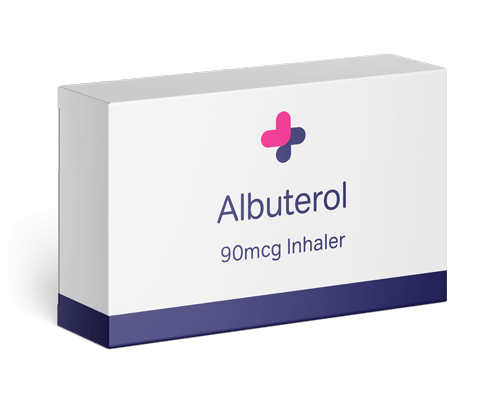Albuterol HFA Inhaler
Don't let asthma stop you with an Albuterol inhaler
Albuterol is a reliever inhaler that will help you to quickly alleviate the symptoms of a sudden asthma attack.
Start your consultation to buy Albuterol HFA Inhaler
Start your consultation to buy Albuterol HFA Inhaler
Buy Albuterol HFA Inhaler from a trusted U.S. Pharmacy

- Fully authorized pharmacy
- Price checked medication
- Free shipping
















Quick and discreet
I ordered Azithromycin tablets for chlamydia treatment, received it next day in a brown discreet pack, and cheaper than all other pharmacies, can't ask for more
Jordan McCann